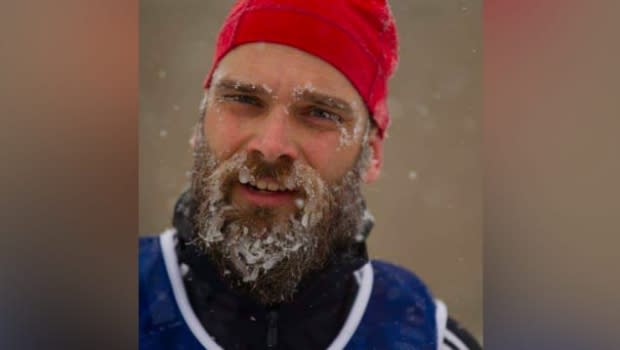Quebec City ice canoeist who died in 2017 accident could not swim, says coroner
An experienced ice canoeist who died in 2017 after his boat capsized in the St. Lawrence River in Quebec City did not reach the shoreline with the craft's other occupants because he did not know how to swim, a coroner has concluded.
Daniel Malenfant, 39, died of hypothermia after spending 53 minutes in the frigid water, according to Coroner Jean-Marc Picard.
The incident occurred on Dec. 13, 2017, when Malenfant was invited to accompany three people visiting from Calgary, along with the boat's owner.
"The weather was bad that day," wrote Picard, describing strong winds, waves and no ice formations on the water.
The crew set out just after 11 a.m. with the proper equipment, including life jackets.
Malenfant was the helmsman, seated at the stern of the canoe, while the boat's owner sat in the bow, with the three visitors in the middle seats.
"He was not paid for these kinds of outings. He did it for pleasure," the coroner highlighted in his report.
The ice canoeists made their way west toward the city's two bridges, the coroner said.
They then backtracked east, toward the Château Frontenac, and were caught off guard when weather conditions worsened on the last leg of their journey.
They headed back to their launch ramp at l'Anse au Foulon, below the Plains of Abraham.
Things took a turn for the worse when winds picked up, reaching 30 to 40 knots. Large waves struck the canoe, eventually causing it to capsize.
The coroner wrote the other occupants swam calmly toward the northern shoreline, reaching it after 25 minutes.
Malenfant, who could not swim, chose to stay behind with the canoe.
"This explains his decision to stay near the craft and wait for help," Picard wrote, concluding Malenfant's death was "violent" and "accidental."
Unanswered questions
Jean Anderson, the president of Quebec's association of ice canoe racers, said he would have liked to have seen more recommendations from the coroner.
Anderson questioned how Picard was able to determine Malenfant died of hypothermia without carrying out an autopsy. In his two-page report, Picard said an autopsy wasn't necessary because he had Malenfant's medical records on hand.

However, the coroner's report also indicates that Malenfant was found face down in the water, and Anderson wonders if it isn't possible that Malenfant might have drowned.
That discrepancy is crucial, said Anderson, because hypothermia victims can survive in cold water for at least one hour, according to the Canadian Coast Guard.
"In theory, even with hypothermia, he should have been alive," said Anderson.
The association was hoping to determine if it should recommend another type of life jacket to its members, however, the coroner did not determine if another jacket would have kept Malenfant's head out of the water.
Experienced canoeist
The report describes Malenfant as an experienced ice canoeist who had been part of a competitive team for the previous seven years.
His decision to stay near the craft instead of swimming to shore was in line with the training provided by the association.
"If I had been in his position, I would have done the same thing," Anderson said.
"Finding four people floating all over the river is much more difficult" for rescuers, he said.

The physiotherapist, who was originally from Rivière-du-Loup, was "very appreciated by this sporting community in Quebec City," Picard wrote.
A few weeks following his death, dozens of ice canoeists held a ceremony in Malenfant's honour near l'Anse au Foulon, observing a minute of silence and then lifting their paddles to the sky.
The director of the ice canoe racers association, Daniel Gélinas, said Malenfant's death has been on people's minds ever since.
"There are a lot of people out there who think twice before going out on the water."

